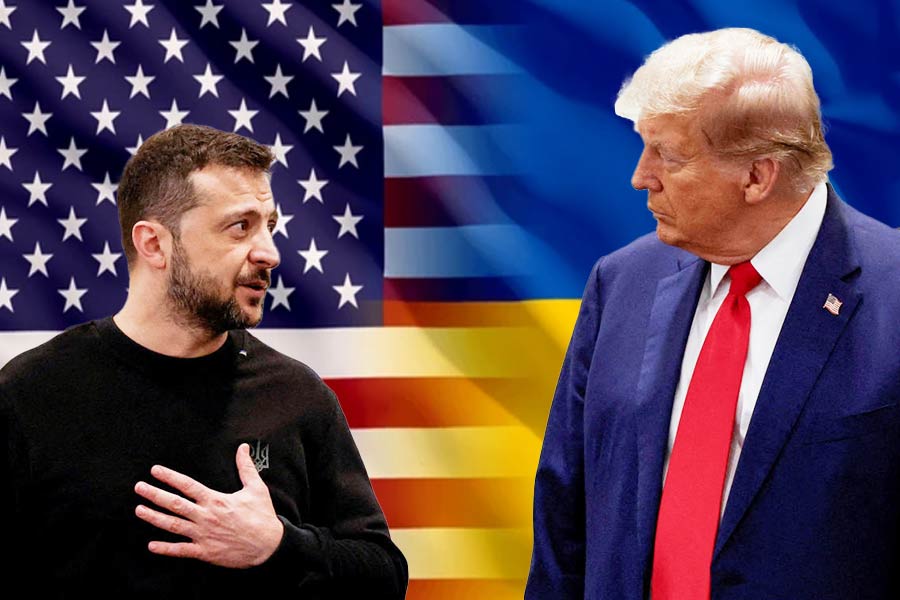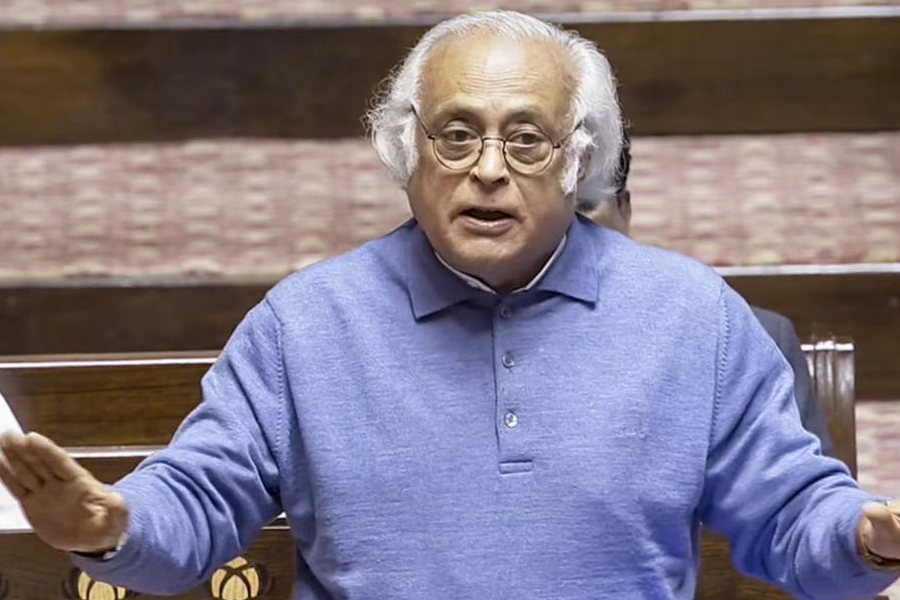The Trump administration has resumed sending some weapons to Ukraine, a week after the Pentagon had directed that some deliveries be paused, US officials said on Wednesday.
The weapons heading into Ukraine include 155 mm munitions and precision-guided rockets known as GMLRS, two officials told The Associated Press on the condition of anonymity to provide details that had not been announced publicly. It's unclear exactly when the weapons started moving.
Defense Secretary Pete Hegseth directed the pause on some shipments last week to allow the Pentagon to assess its weapons stockpiles, in a move that caught the White House by surprise.
A White House official speaking Wednesday on the condition of anonymity said there was never a “pause” in shipments, but a review to ensure US military support aligns with its defense strategy. The official said the Pentagon never announced a pause.
In a press briefing with reporters last week, though, Pentagon chief spokesman Sean Parnell said he could not “go into detail about what weapons were paused and when and what we're providing and when. Ultimately, the president and the secretary will make those decisions about what happens with those weapon systems.”
The pause affected Patriot missiles, the precision-guided GMLRS, Hellfire missiles, Howitzer rounds and more, taking not only Ukrainian officials and other allies by surprise but also US lawmakers and other parts of the Trump administration, including the State Department.
It was not clear if a pause on Patriot missiles would hold. The USD 4 million munition is in high demand and was key to defending a major US air base in Qatar last month as Iran launched a ballistic missile attack in response to the US targeting its nuclear facilities.
President Donald Trump announced Monday that the US would continue to deliver defensive weapons to Ukraine. He has sidestepped questions about who ordered the pause in exchanges with reporters this week.
“I would know if a decision is made. I will know,” Trump said Wednesday. “I will be the first to know. In fact, most likely I'd give the order, but I haven't done that yet.”
Asked a day earlier who ordered the pause, he said: “I don't know. Why don't you tell me?”
Trump has privately expressed frustration with Pentagon officials for announcing the pause — a move that he felt wasn't properly coordinated with the White House, according to three people familiar with the matter.
The Pentagon has denied that Hegseth acted without consulting the president, saying: “Secretary Hegseth provided a framework for the President to evaluate military aid shipments and assess existing stockpiles. This effort was coordinated across government.”
It comes as Russia has fired escalating air attacks on Ukraine, with a barrage that the largest number of drones fired in a single night in the three-year-old war, Ukrainian officials said Wednesday.
Trump has become increasingly frustrated with Russian President Vladimir Putin, saying he wasn't happy with him.
"Putin is not, he's not treating human beings right,” Trump said during a Cabinet meeting Tuesday, explaining the pause's reversal. “It's killing too many people. So we're sending some defensive weapons to Ukraine, and I've approved that.”
The 155 mm artillery rounds have become some of the most used munitions of the war. Each round is about 2 feet (60 centimeters) long, weighs about 100 pounds (45 kilograms) and is 155 mm, or 6.1 inches, in diameter. They are used in Howitzer systems, which are towed large guns identified by the range of the angle of fire that their barrels can be set to.
Howitzer fires can strike targets up to 15 to 20 miles (24 to 32 kilometers) away, depending on what type of round and firing system is used, which makes them highly valued by ground forces to take out enemy targets from a protected distance.
The U.S. has provided more than 3 million 155 mm rounds to Ukraine since Russia invaded its neighbour in February 2022. It has sent more than USD 67 billion in overall weapons and military assistance to Ukraine in that period.










